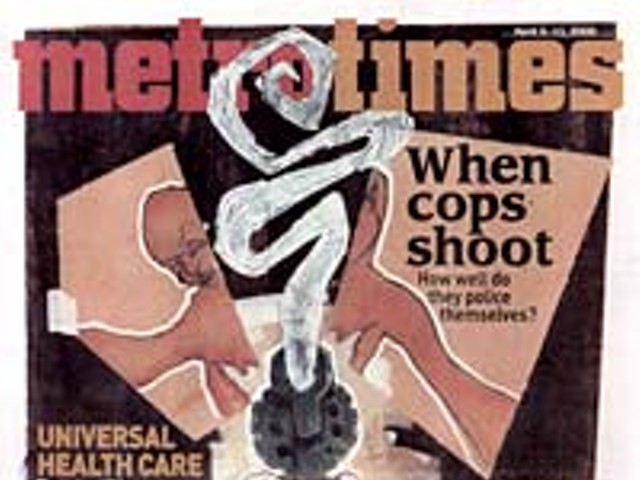There’s no nice way to say it. The year 2000 was a big, bad year for the Web.
Big because the Web got bigger, in more ways than one. The online population in this country alone grew to 122 million, encompassing nearly half of all Americans. Meanwhile, according to industry Web watcher thestandard.com, global Net use swelled to 338 million people — an increase by a third from 1999.
And bad because … well, a lot of reasons. Stock prices plummeted as the technology “bubble” burst — revealing itself to be a cellophane-thin ceiling made of still nonexistent profits and (more importantly) unrealistic expectations.
Even so, big business got busy online — often in a big, bad way. From backroom deals to courtroom challenges to huge up-front spending, corporate money went online and the repercussions will be felt for years to come.
Here’s a look back at the year that’s rapidly coming to a close — big, bad and occasionally ugly.
Mr. Bubble, down the drain
By far the biggest story of 2000 was the public’s general loss of confidence in the technology industry. Since March, NASDAQ — the world’s leading new economy index — has been in a slow free fall. Seems investors have begun realizing that everyone can´ get rich overnight.
Building a business — any business — takes time. It’s easy to forget that one short year ago, hundreds of faddish news stories shouted that the Web was paved with gold.
But starting this past fall, the mainstream media switched gears and joined the “boom to bust” outcry … even though they may have had as much to do with inflating expectations as anyone else. At a recent trade show, one “60 Minutes” reporter went so far as to corner 1800flowers.com executives into explaining why they’re not hitting their profit projections.
What’s the biggest causality of all this? The perception that the Web is hip and cool. But like consumer confidence, that’s all just a state of mind anyway.
Merge-a-rama
Speaking of unhip, 2000 was the year Web-related big businesses tried to lock lips and get cozy.
Way back in January, Web juggernaut America Online announced its intention to acquire media juggernaut Time Warner. Just a few weeks ago, the Federal Trade Commission approved the plan, and now it’s up to the Federal Communications Commission to complete the deal. If they do, 2001 may see the emergence of the Web’s first media superpower.
Others weren’t so lucky. Sprint’s proposed merger with Worldcom was shot down after the Justice Department threatened legal action.
And in June, U.S. District Court Judge Thomas Penfield Jackson ordered Microsoft to be split in two after the company was found guilty of antitrust violations. Six months later, the company is still together and defiantly setting its hopes on an upcoming appeal.
MP3 grows up
Y2K was also the year the music industry noticed the Web. Thanks to a previously unheard-of technique known as peer-to-peer file sharing, a young upstart company known as Napster let Web users freely trade MP3 files.
The recording industry freaked out, Metallica drummer Lars Ulrich got really mad, and lawsuits ensued. The dramatic high point came in July, when a trial judge ordered Napster to shut down and scared the shit out of online music lovers everywhere (the order was halted two days later). Eventually, one of the world’s largest record companies — German conglomerate BMG — cut a deal with Napster.
It was an eerie turnaround for the formerly indignant plaintiff, and the move will likely sound the death knell of the old-school music business. Expect to see some sort of online subscription service from Napster next year — with users paying a modest monthly sum in exchange for the right to legally download all the tunes they want.
Miscellaneous mischief
Lots more happened in 2000. Some of it was big: In January, Bill Gates stepped down as CEO of Microsoft (taking the more muted role of chief software architect). And in June, Bill Clinton delivered the first presidential address to be broadcast online.
Some of it was bad: In February, DoubleClick Corporation got caught harvesting personal data from its customers without asking for permission. In May, the “I Love You” virus screwed up PCs around the world. And even more sinister: In July, news organizations confirmed the existence of Carnivore, the FBI’s covert e-mail interception technology.
Y2-OK
Maybe the biggest story of 2000 was that, as calendars across the globe flipped over to Y2K, computers quietly (and correctly) did the same.
Not that there wasn’t ever a real problem. Chalk this nonevent up to years of careful reprogramming or, in many cases, “nick of time” fixes by hardworking techies. And how’s this for poetic justice? Some Y2K repairs came courtesy of the same aging programmers who originally installed the buggy code in the first place.
Meanwhile, aside from last February’s “denial-of-service” hacker attacks (which hobbled amazon.com and a few other high-profile sites for a couple days), all was quiet on the digital front. No major snafus involving leaked credit card numbers. No widespread identity theft. And no public outcry. I know that’s not big news. But it’s not bad either.
Adam Druckman writes about the Web for the Metro Times. E-mail him at [email protected]




